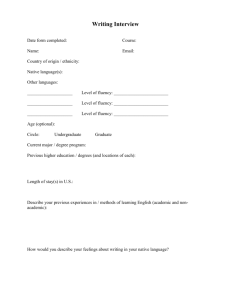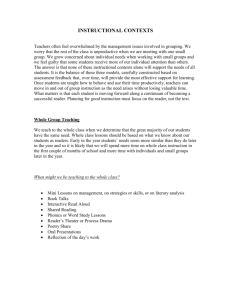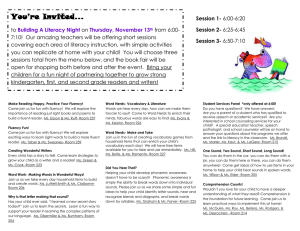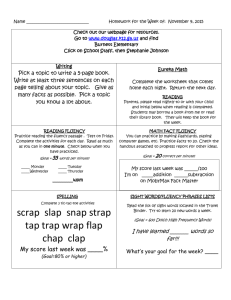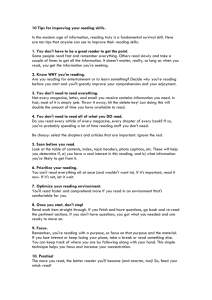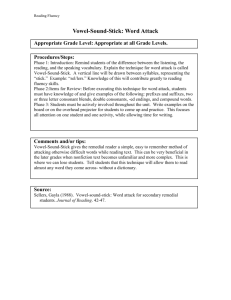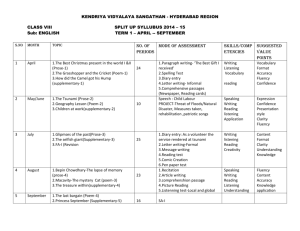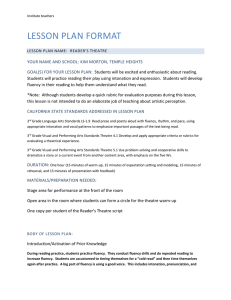Nine Tips for Helping Your Child Become a Successful Reader
advertisement
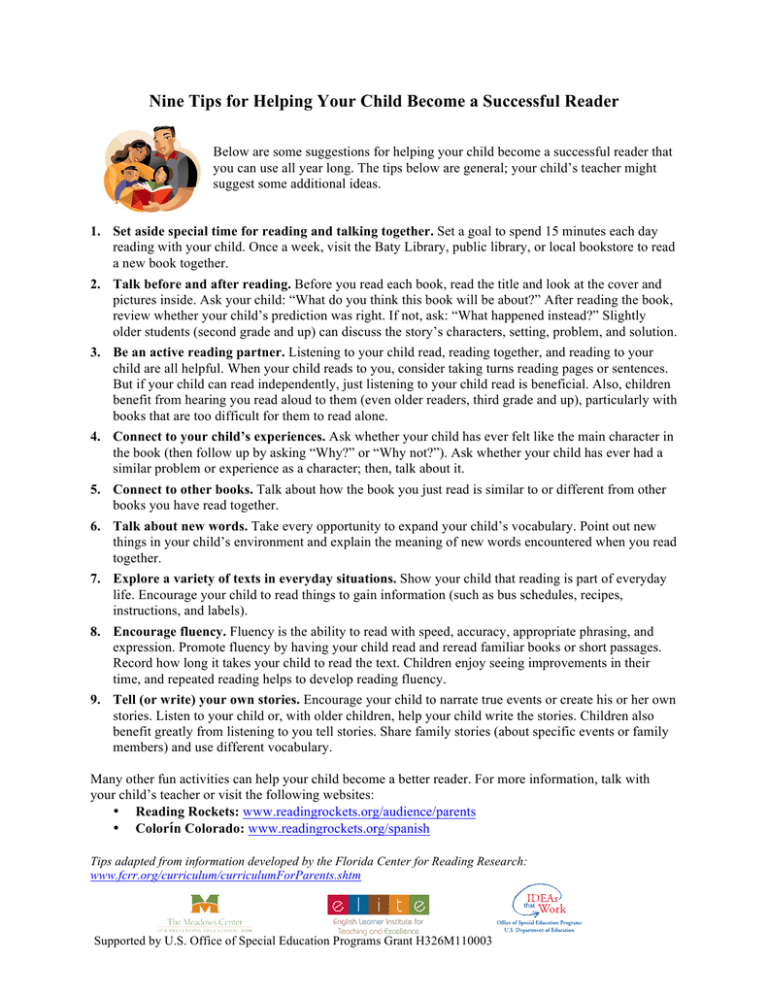
Nine Tips for Helping Your Child Become a Successful Reader Below are some suggestions for helping your child become a successful reader that you can use all year long. The tips below are general; your child’s teacher might suggest some additional ideas. 1. Set aside special time for reading and talking together. Set a goal to spend 15 minutes each day reading with your child. Once a week, visit the Baty Library, public library, or local bookstore to read a new book together. 2. Talk before and after reading. Before you read each book, read the title and look at the cover and pictures inside. Ask your child: “What do you think this book will be about?” After reading the book, review whether your child’s prediction was right. If not, ask: “What happened instead?” Slightly older students (second grade and up) can discuss the story’s characters, setting, problem, and solution. 3. Be an active reading partner. Listening to your child read, reading together, and reading to your child are all helpful. When your child reads to you, consider taking turns reading pages or sentences. But if your child can read independently, just listening to your child read is beneficial. Also, children benefit from hearing you read aloud to them (even older readers, third grade and up), particularly with books that are too difficult for them to read alone. 4. Connect to your child’s experiences. Ask whether your child has ever felt like the main character in the book (then follow up by asking “Why?” or “Why not?”). Ask whether your child has ever had a similar problem or experience as a character; then, talk about it. 5. Connect to other books. Talk about how the book you just read is similar to or different from other books you have read together. 6. Talk about new words. Take every opportunity to expand your child’s vocabulary. Point out new things in your child’s environment and explain the meaning of new words encountered when you read together. 7. Explore a variety of texts in everyday situations. Show your child that reading is part of everyday life. Encourage your child to read things to gain information (such as bus schedules, recipes, instructions, and labels). 8. Encourage fluency. Fluency is the ability to read with speed, accuracy, appropriate phrasing, and expression. Promote fluency by having your child read and reread familiar books or short passages. Record how long it takes your child to read the text. Children enjoy seeing improvements in their time, and repeated reading helps to develop reading fluency. 9. Tell (or write) your own stories. Encourage your child to narrate true events or create his or her own stories. Listen to your child or, with older children, help your child write the stories. Children also benefit greatly from listening to you tell stories. Share family stories (about specific events or family members) and use different vocabulary. Many other fun activities can help your child become a better reader. For more information, talk with your child’s teacher or visit the following websites: • Reading Rockets: www.readingrockets.org/audience/parents • Colorín Colorado: www.readingrockets.org/spanish Tips adapted from information developed by the Florida Center for Reading Research: www.fcrr.org/curriculum/curriculumForParents.shtm Supported by U.S. Office of Special Education Programs Grant H326M110003
